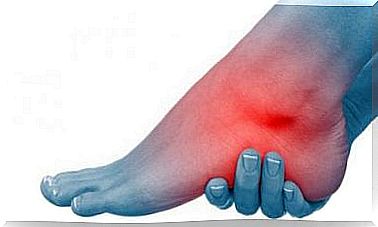What Is The Connection Between Diabetes And Sleep Disorders?

Did you know that blood sugar fluctuations can prevent you from falling asleep and resting properly? The link between diabetes and sleep disorders is a common problem that affects many people, but it is not discussed enough.
Sleep disorders are common among patients with type 2 diabetes and manifest in a variety of ways, from restless legs syndrome and sleep apnea to the urgent need to go to the bathroom at night. The consequences are a lack of rest, fatigue during the day and even a worsening of the disease itself.
It is necessary to take these problems and symptoms into account in order to discuss them with your doctor. In reality, the treatment for sleep disorders may be simpler than you think. In the following we present you more useful information.
The link between diabetes and sleep disorders

As we already know, diabetes is a disease characterized by the body’s difficulty in producing an adequate amount of insulin on its own. Thus, blood sugar rises abnormally, which is extremely dangerous.
In type 1 diabetes, the pancreas is the one that cannot produce insulin. In contrast, in the case of type 2 diabetes, the body can produce this hormone, but not at an optimal level.
Interestingly, sleep disorders are more common among patients with type 2 diabetes due to fluctuations in blood sugar.
Let’s see what problems occur most often and why.
Excessive urination during the night
The link between diabetes and sleep disorders manifests itself in various ways. One of the most common is waking up two or three times a night to go to the bathroom or drink water.
Hyperglycemia causes an urgent need to urinate. If there is a high level of glucose, the body extracts water from the tissues. Thus, you become dehydrated and feel the need to drink water. But once you drink 2-3 glasses of water, you need to go to the bathroom again. It’s a vicious circle!
At the same time, hypoglycemia causes a general feeling of sickness, dizziness and sweating. All these symptoms diminish the quality of sleep.
Sleep apnea

Sleep apnea is very common in diabetics. But at the root of this discomfort are usually weight problems. Many people with type 2 diabetes also suffer from obesity. Excess weight presses on the chest, making it difficult for air to pass during night breathing.
Snoring is not always a harmless problem. Given the link between diabetes and sleep disorders, snoring can indicate a serious health problem.
Sleep apnea is the cessation of breathing for a period of time. Thus, if you snore frequently, you experience a low concentration of oxygen in the blood.
Restless legs syndrome
The connection between diabetes and restless legs syndrome seems difficult to conceive, but it is not at all so. This nocturnal disorder can have various causes, including iron deficiency, hyperglycemia and kidney disease. At the same time, restless legs syndrome is common among smokers. Therefore, regular visits to the doctor are very important.
In some cases, mild anemia can lead to the development of restless legs syndrome, aggravating the symptoms of diabetes.
How to improve your sleep quality if you suffer from diabetes

With the help of certain simple habits, you can improve your sleep quality if you suffer from diabetes.
food
- In order to rest well and prevent night visits to the bathroom, it is advisable to consume less fluids before bed.
- Avoid energy drinks such as coffee, certain shakes or teas.
Light exercise in the afternoon
- Regular exercise improves your sleep quality.
Avoid electronic devices
- Two hours before bed, put aside your mobile phone, laptop, tablet, etc.
- Electronic devices stimulate brain activity and affect your sleep quality.
Follow a meal and sleep schedule
It is necessary, as much as possible, to respect a certain schedule every day: to eat at the same hours, to go to bed, to wake up, etc. This beneficial habit helps regulate the circadian rhythm, which improves your health and sleep quality.
Regular medical visits
Given the connection between diabetes and sleep disorders, it is a good idea to talk to a doctor about any unusual problems or symptoms.
In addition, if you suffer from diabetes, regular visits to the doctor are important for monitoring the disease, but also for body weight, possible nutritional deficiencies, heart health, etc. All these factors can in turn affect your sleep and rest. Therefore, it is important to take care of yourself so as not to allow the disease to diminish your quality of life. Deserve!









